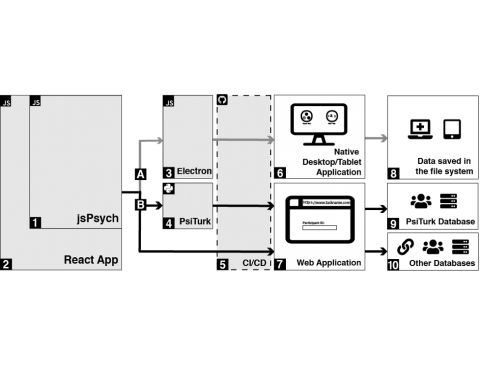Psychophysiological tasks are a useful tool for studying human behavior driven by mental processes such as cognitive control, reward evaluation and learning. Neural mechanisms during behavioral tasks are often studied via simultaneous electrophysiological recordings. Popular online platforms such as Amazon Mechanical Turk (MTurk) and Prolific enable deployment of tasks to numerous participants simultaneously. However, there is currently no task-creation framework available for flexibly deploying tasks online and during simultaneous electrophysiology. Researchers at Brown developed a task creation template, called Honeycomb, that standardizes best practices for building jsPsych-based tasks. Honeycomb offers continuous deployment configurations for seamless transition between use in research settings and at home. Researchers have also curated a public library, called BeeHive, of ready-to-use tasks. Researchers demonstrate the benefits of using Honeycomb tasks with a participant in an ongoing study of Deep Brain Stimulation for Obsessive-Compulsive Disorder, who completed repeated tasks both in the clinic and at home. Honeycomb enables researchers to deploy tasks online, in clinic and at home in more ecologically valid environments and during concurrent electrophysiology.
Potential Impact
The ability to write one code base and use it flexibly across settings (with guaranteed consistency in instructions, timing, etc.) is an important advance that is highly relevant for psychiatry researchers and beyond. Simultaneous online and desktop-based task deployment could enable characterization of population behavior and neural biomarker discovery for functional deficits underlying psychiatric disorders.
